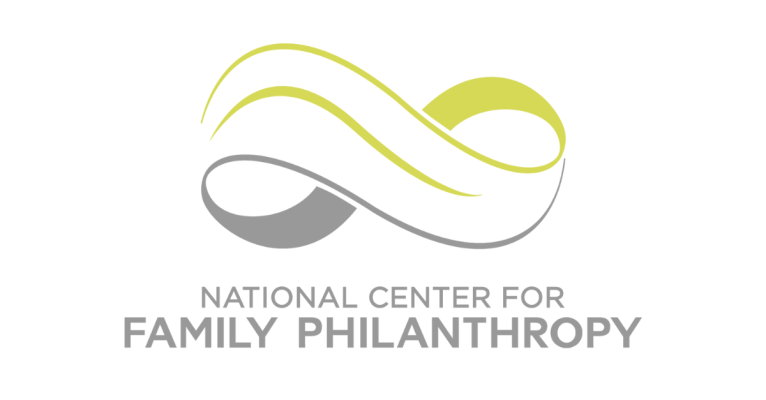Time to Act: Applying Universal Values and Rigor in Equity-Centered Philanthropic Practice
Confronting and transforming the devastating harm of a planet in crisis along with the ongoing reckoning of persistent deep inequities stands as The Work of our time. Many of us feel a blend of overwhelm, unknowing, and grief - perhaps even guilt and anxiety - that may drive paralysis. Philanthropic investments in Black, Indigenous, and other People of Color-led efforts to revitalize our economy, enliven democracy, and heal our planet can be among our generation’s most brilliant legacies. The actions we'll discuss are some of the core competencies mentioned in Get It Right: 5 Shifts Philanthropy Must Make Toward an Equitable Region. The shifts put forth in the report are not necessarily new, but they underscore the basic tenets of the changes that philanthropy needs to make to eliminate inequitable structures, policies, and practices and advance opportunities to generate security, healing, and new possibilities for those currently living on the margins.
Join us to find out what you, as a philanthropic leader, can do to advance them.
Our Call to Action:
- For the sake of our collective future, all philanthropic funders can address the systemic ways in which intersecting crises affect health, food systems, democracy, human rights, economic opportunity, and ecological vitality. There are extraordinary opportunities to make large-scale and transformative change.
- Philanthropy has resources and networks to offer, especially to communities experiencing the greatest harm and the social movements and trusted, capable leaders already walking the path toward a more promising future.
- Effective philanthropic practice is both a moral and practical imperative if we are to halt and respond to the ongoing impacts of structural racism, pandemic disease, and the climate crisis; stop climate pollution; and revitalize strategies that support us to live in harmony with nature.
Target Audience
This event is for foundation CEOs, board members, and trustees; individual donors giving directly or through donor advised funds or giving circles; and others involved in governance and decision-making around policy and resource allocation (e.g., Vice President of Programs and similar).
Registration
NCG requires that every person attending or participating in events be fully vaccinated against COVID-19 and its variants, including any boosters recommended by the FDA and Centers for Disease Control and Prevention (CDC). Proof of vaccinations must be provided. To learn more about NCG'S COVID-19 Health & Safety Protocols for in-person events, please click here.
Can't attend but want to learn more? Contact the team at [email protected].
Armando Castellano
Armando Castellano
Armando Castellano is an arts advocate and philanthropist who resides in the San Francisco Bay Area. He is a professional musician and bilingual teaching artist who plays the French horn, performing and teaching internationally. He sits on 3 boards including as a founding board member of the Donors of Color Network. Additionally, he is a second generation family member and trustee of the Castellano Family Foundation, a community embedded foundation funding Latino serving and led nonprofits throughout the region, as well as championing DEI, cultural competency and race equity within the philanthropic field at large.
Allison Magee
Allison Magee
For over 20 years Allison Magee has worked to transform public systems to reflect the strengths and meet the needs of the community. Allison is Executive Director of the Zellerbach Family Foundation, one of San Francisco’s oldest and most respected family foundations. ZFF promotes belonging, connection, and a shared sense of safety among people and communities across the Bay Area and California, with a focus on Alameda, Contra Costa, and San Francisco Counties.
Allison previously worked for the City and County of San Francisco, where she served as a leader in strengthening services for system involved youth and their families. Her work as Deputy Director of the San Francisco Juvenile Probation Department includes the development of a national model for juvenile justice system reform. Allison also established a collaborative model for the city’s funding of community-based services that resulted in over $14 million in dedicated funding for violence prevention programs for San Francisco youth. Allison was awarded SPUR’s Good Governance Award for her work at JPD.
Allison also worked for Mayor Gavin Newsom’s Office of Budget and Policy, and the US Department of Justice Office of the Inspector General where she won the Inspector General’s Excellence Award. Allison holds a master’s degree in Public Policy and Administration and a master’s degree in Social Work, both from Columbia University. She also holds a bachelor’s degree in Political Science from San Francisco State University. Allison sits on the board of San Francisco’s GLIDE and previously with Northern California Grantmakers where she served as Board Chair. Allison lives in San Francisco with her husband and two sons.
Dwayne S. Marsh
Dwayne S. Marsh
Dwayne S. Marsh assumed the position of President and CEO of Northern California Grantmakers on September 9, 2020. He brings 27 years of experience in the public, nonprofit, and philanthropic sectors with a career commitment to advancing racial and economic equity.
Dwayne recently completed a four-year turn as co-Director of the Government Alliance on Race and Equity (GARE) and Vice President of Institutional and Sectoral Change at Race Forward Race Forward. During his tenure, the membership network of local, regional, and state entities committed to advancing racial equity through the policies, practices, and public investments grew from just over 20 to nearly 200 participating jurisdictions.
Prior to GARE, Marsh spent six years as a senior advisor in the Office of Economic Resilience (OER) at the U.S. Department of Housing and Urban Development. There, he helped advance sustainable planning and development through interagency partnerships, departmental transformation, and funding initiatives managed through OER. He was OER’s principal coordinator for a $250 million grant program and led the development of capacity building resources that reinforced the work of pioneering grantees in 48 states and the District of Columbia. Under his leadership, OER prioritized equity as a foundational principal for its planning and investment initiatives.
Marsh brings to the movement his expertise and considerable experience in coalition building for regional equity and leadership development for policy change. He provides technical assistance and capacity building knowledge to equitable development initiatives that address continuing disparities in affordable housing, transportation investment, and environmental justice. Before HUD, Marsh spent a decade at PolicyLink, the national organization committed to economic and social equity. Before PolicyLink, he directed the FAITHS Initiative for eight years at The San Francisco Foundation, building a nationally renowned community development and capacity building program that continues to this day. His career has been defined by supporting communities traditionally marginalized from full participation in our economy and society to build power and leverage lasting systems transformation.

